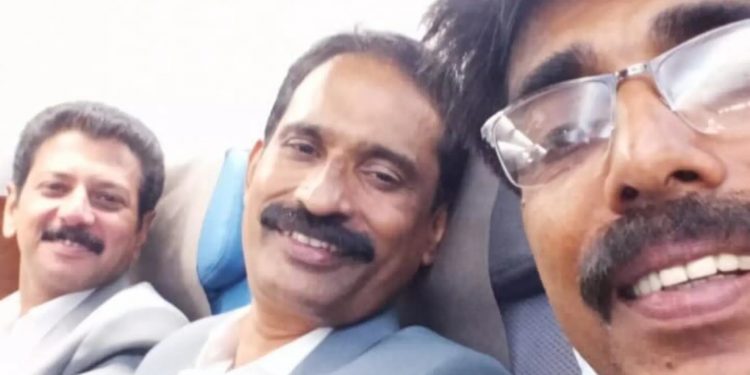On September 1, Australian Border Force (ABF) officials detained Polachan Vareed, Shibu Lonakunji, and Shaju Kunjuvareed on the grounds that they had not arrived in Australia with their spouses as originally claimed on their visa applications and that they were planning to work for their brother-in-law Biju Pallan while there.
The tourists, who are related, spent over 110 hours in a Perth immigration detention centre after ABF chose to deport them and revoked their tourist visas. They came to Western Australia (WA) to attend Pallan’s daughter’s holy communion, and Pallan, who owns a construction business in Perth, had intended to show them around the state and take them on vacation to South Australia.
Moreover, the spouses of the trio decided at the last minute to stay in India, but the men were interrogated for 12 hours at Perth Airport before being held at a hotel.
The way his brothers-in-law were treated and his own public interrogation at the airport, according to Pallan, were “terrible” experiences that damaged his family’s opinion of the nation he had called home for 18 years.
Pallan said, “they asked if I have money for them to stay with me, I said, ‘Of course I have, then they asked me in front of everyone to show them my bank account.”
He added, “We were very badly treated, the same questions kept repeating. I gave all the details to them, it was embarrassing.”
After learning that his in-laws’ visas had been revoked, Pallan sought the assistance of Melbourne-based immigration attorney Carina Ford, who had defended the Murugappan family in their struggle to stay in Australia.
Ford was successful in obtaining an order from Melbourne’s Federal Circuit Court to halt the men’s deportation and prevent the termination of their visas. Additionally, the government was required to pay expenses, which would probably result in a bill in the tens of thousands of dollars.
The ABF and immigration officials refuted their decision to revoke the men’s visas in court, claiming that it was affected by the jurisdictional error.
According to the court judgement from September 6, “the respondent concedes there was no evidence before the delegate that the information provided by the applicant, being who he intended to travel to Australia with, was incorrect at the time the application was lodged”.
Suresh Rajan, president of the Ethnic Communities Council of Western Australia, said the incident smacked of stereotyping. He said that they wouldn’t have used this kind of research on someone arriving from the UK or Europe who just so happened to have white skin. “I question if it is stereotyping based on the colour of their skin,” he stated.
“They accused these guys in the conversation of wanting to come here and take jobs; two of them are working in Kuwait and Dubai, they said they were comfortably employed back there and the third is employed back home in India.”
As the state and federal governments worked to promote tourism in the wake of COVID, Rajan claimed that the treatment of the men gave the absolute opposite impression. “Don’t ever come here,” he said, referring to the message that these men had conveyed to their families back home.
ABF firmly denied any racism was present, saying it did not comment on specific cases owing to privacy concerns.
An ABF spokesperson said, “The ABF fundamentally rejects suggestions that racism played any part in this matter. Each case is decided on its individual merits according to the law. Visa cancellation powers help to ensure the protection of the Australian community and the integrity of Australia’s borders and visa programs.”
He added, “beyond that, Australia operates a global and non-discriminatory migration program.”
Shibu Lonakunji, speaking via a translator, remarked that his experience was something they had never anticipated taking place in Australia. He said, “we never expected this kind of treatment, we were treated as people who had broken the law and that is wrong. It will take us some time to get over those feelings of hurt.”











